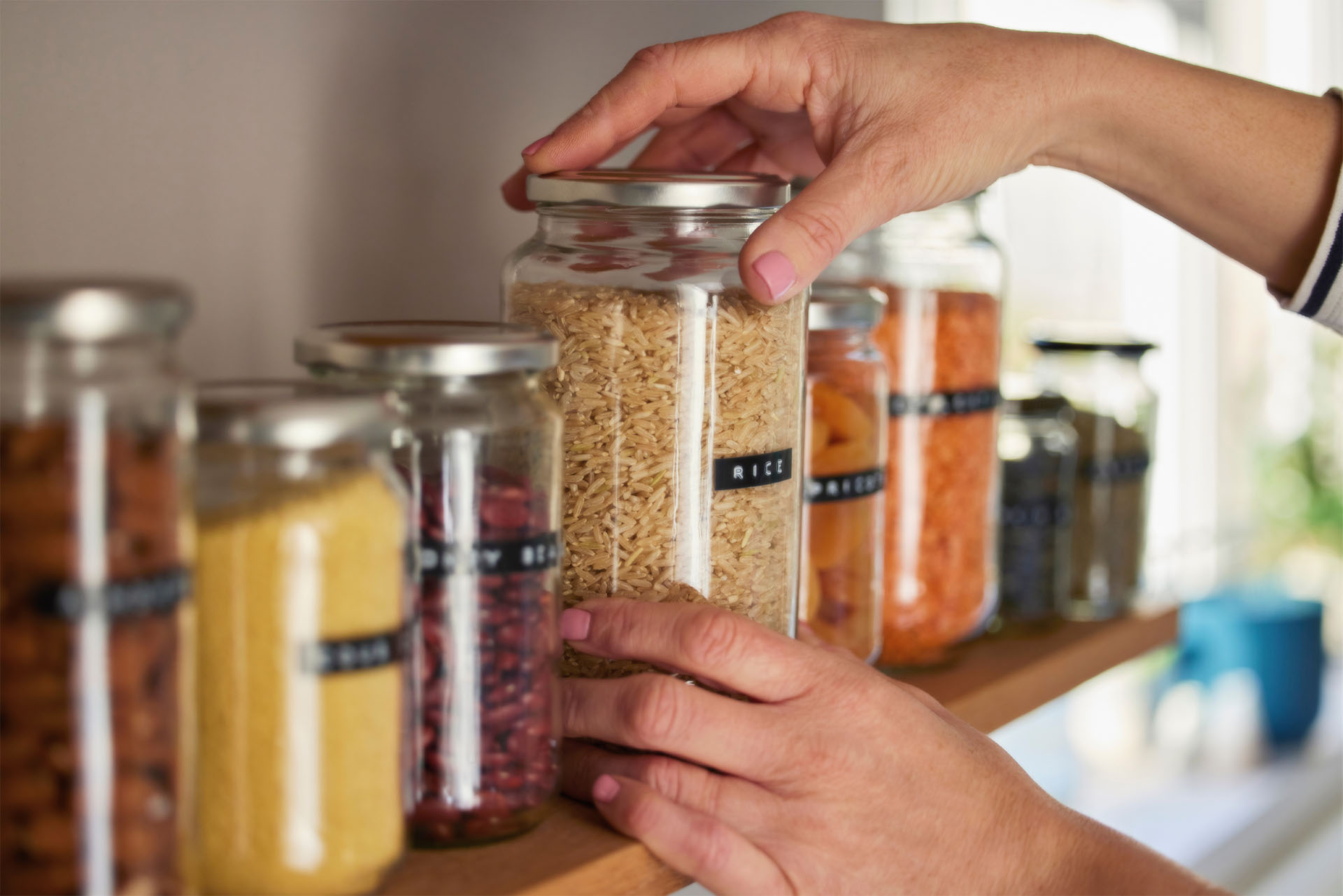
HOW TO GREEN YOUR HOME
Making the Switch from Plastic
By Rosa Colucci
March 30, 2024
I’ve been thinking a lot about food storage lately.
It all started a few weeks ago when I went to the grocery store and was taken in by a display of fresh berries on sale. Blueberries, strawberries, blackberries, and raspberries were stacked several layers high in clear, plastic vented clamshells.
I remembered when blueberries were sold in green cardboard cartons by the pint, covered with a net and fastened with a rubber band. I realize that’s impractical nowadays (because more than 60 percent of fresh fruit is trucked in from Mexico) but let’s face it, that colorful display was a mini-environmental nightmare — clamshell packaging takes anywhere from 20-500 years to decompose in a landfill.
It’s the same with disposable plastic storage containers that come in all shapes and sizes in the paper aisle, or plastics that other foods are sold in such as yogurt, dairy creams, refrigerated dips, and the list goes on.
We are inundated with disposables so it is mandatory that we recycle, but before it goes to the bin, think about an alternate use for it. For instance, plastic deli containers are great for reuse since the lids fit three different sizes and can find a second life storing dry goods, arts, and crafts items; garage items and small toys. They are very useful for household tasks from cleaning to painting. For items that you are going to recycle, make sure you rinse food before putting in the bin.
It’s also time to cut down on the use of single-use plastics. That includes grocery bags and sandwich bags. I keep shopping bags in the car and will often not even take a bag when purchasing small items. Pack all lunches in reusable containers or do what my (Italian-born) mom did — pack the sandwich in waxed paper, keep the fruit intact and wrap a few cookies in a paper napkin. Also pack real utensils and wash them.
There are sometimes that plastic bags are a better option (long-term freezer storage, sealing meats and proteins) but the less you buy the less big companies will make. It’s all a matter of supply and demand.
Another wise investment is glass storage containers with BPA-free lids. Frigoverre and Pyrex make great containers that last for years. Both odor and stain-proof, they are dishwasher, freezer and microwave safe (sans lid). It’s the choice of most professional chefs and great to maximize storage and freshness.
Shop for vintage Pyrex and casserole dishes with glass lids at second hand shops. They are great for leftovers and last forever. There are lots of small individual serving sizes that ago from refrigerator to microwave.
Don’t overlook glass jars, you can reuse grocery store spaghetti jars and just put new lids with seals on them (Ball Jars). They are great for storing spices, beans, and other dry goods.
These minor changes make major differences and in the end, save you money. Less wasted food, less wasted money on bags and a healthier diet and plant for all.

Leave A Comment